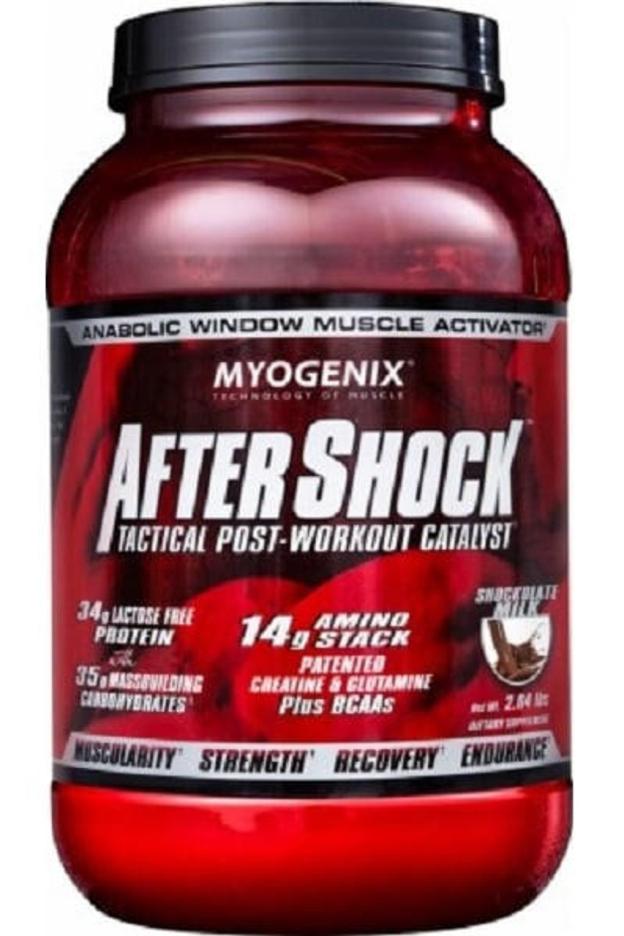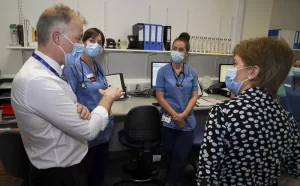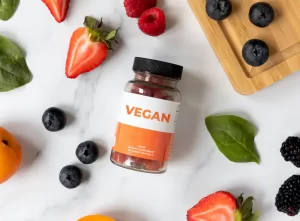
After an intense workout session, the feeling of accomplishment can be invigorating. You’ve pushed your body to its limits, challenged your muscles, and taken a step closer to your fitness goals. However, there’s a catch to this exhilaration: the aftermath. The soreness that creeps in hours or even days after your workout can leave you feeling like you’ve been hit by a freight train. This discomfort, known as muscle soreness, is an all too familiar companion for fitness enthusiasts, athletes, and beginners alike.
Whether you’re a seasoned athlete or just embarking on your fitness journey, understanding the role of these supplements and how to incorporate them into your routine can make a significant difference in your overall well-being and fitness progress. So, let’s journey together into the realm of post-workout supplements and discover how they can be your trusted allies on the path to recovery and peak performance.
Muscle Soreness
Muscle soreness is a familiar sensation to anyone who’s engaged in physical activity, be it a rigorous workout or a long day of strenuous manual labor. It’s that dull, sometimes sharp, ache or discomfort in your muscles that sets in after exertion. Understanding muscle soreness is essential for anyone looking to optimize their recovery and overall fitness journey.
What is Muscle Soreness and Why Does it Occur?
Muscle soreness, also known as myalgia, is a result of tiny, microscopic damage to muscle fibers during exercise or physical activity. This damage occurs primarily due to two types of muscle contractions:
- Eccentric Contractions: These contractions involve the lengthening of a muscle under tension. For example, when you lower a weight during a bicep curl or descend a flight of stairs, your muscles are undergoing eccentric contractions.
- Concentric Contractions: These contractions involve the shortening of a muscle under tension, such as when you lift a weight during a bicep curl or climb a flight of stairs.
Muscle soreness can occur after any strenuous physical activity that your body is not accustomed to, including intense workouts, sports, or even activities like gardening if they push your muscles beyond their usual limits.
The exact reason for muscle soreness is not entirely understood, but it is believed to be a result of various factors, including:
- Microscopic Muscle Fiber Damage: The physical stress placed on muscles during exercise can cause tiny tears in the muscle fibers. This damage triggers an inflammatory response as the body works to repair and rebuild the muscle tissue.
- Lactic Acid Buildup (Acute Soreness): Contrary to popular belief, lactic acid buildup is not the primary cause of muscle soreness. However, during intense exercise, lactic acid can accumulate temporarily and contribute to the sensation of acute soreness. This type of soreness usually subsides relatively quickly after exercise.
- Inflammation (Delayed Onset Muscle Soreness – DOMS): DOMS is the most common form of muscle soreness experienced after a strenuous workout. It typically peaks 24 to 72 hours after exercise. DOMS is believed to be primarily caused by inflammation and the release of various biochemical substances, including prostaglandins, cytokines, and histamines, which are part of the body’s natural response to tissue damage.
Differentiating Acute and Delayed Onset Muscle Soreness (DOMS)
It’s important to differentiate between acute muscle soreness, which occurs during or immediately after exercise, and DOMS, which sets in after a delay. Acute soreness is usually a result of the immediate stress placed on muscles during an activity and often subsides relatively quickly, typically within hours.
On the other hand, DOMS is characterized by a gradual onset, peaking 24 to 72 hours post-exercise. It is often described as a deep, aching pain that can make even simple movements uncomfortable. DOMS is more intense and longer-lasting than acute soreness, and it’s associated with the microscopic damage and inflammation discussed earlier.
Factors Contributing to Muscle Soreness
Several factors can contribute to the severity of muscle soreness:
- Exercise Intensity: The greater the intensity of your workout, the more likely you are to experience muscle soreness. Heavy resistance training, high-intensity interval training (HIIT), and endurance exercises can all lead to significant muscle soreness, especially if you’re pushing your limits.
- Exercise Duration: Longer workouts or prolonged periods of physical activity, especially if you’re engaging in unfamiliar activities, can increase the likelihood of muscle soreness.
- New or Unfamiliar Movements: Introducing new exercises or movements into your routine, or suddenly increasing the intensity or volume of your workouts, can lead to more significant muscle soreness as your muscles adapt to the new demands.
The Role of Nutrition in Recovery
When it comes to achieving your fitness goals, it’s not just what you do in the gym that matters; it’s also what you put into your body. If you are finishing a cycle and ready for pct, proper nutrition plays a pivotal role in maximizing your otc post cycle, ensuring that your muscles repair and replenish effectively. In this section, we’ll explore the importance of nutrition for recovery and the specific nutrients that facilitate this process.
The Importance of Proper Nutrition for Recovery
Recovery is a multifaceted process that involves repairing and rebuilding muscle tissue, replenishing energy stores, and reducing inflammation. Nutrition provides the raw materials and energy needed to carry out these essential tasks. Here’s why nutrition is crucial for recovery:
- Muscle Repair: After a workout, your muscles undergo micro-tears and damage. Adequate protein intake is essential for repairing and rebuilding these muscle fibers, making them stronger and more resilient.
- Energy Replenishment: Exercise depletes your body’s energy stores, primarily glycogen (stored carbohydrates). Carbohydrates in your diet help replenish glycogen, providing the energy required for future workouts and daily activities.
- Inflammation Reduction: Proper nutrition can help reduce the inflammation associated with muscle soreness and injury. Certain foods and nutrients possess anti-inflammatory properties, which can ease post-workout discomfort.
- Immune Support: Strenuous exercise can temporarily weaken your immune system. A well-balanced diet provides essential vitamins and minerals that bolster your immune system, helping you stay healthy and recover faster.
Nutrients for Muscle Repair and Glycogen Replenishment
- Protein: Protein is often hailed as the cornerstone of recovery nutrition. It provides the building blocks (amino acids) necessary for muscle repair and growth. Consuming an adequate amount of protein post-workout helps kickstart the recovery process. Sources of protein include lean meats, poultry, fish, dairy, eggs, and plant-based options like tofu, beans, and lentils.
- Carbohydrates: Carbohydrates are your body’s primary source of energy, and they play a vital role in glycogen replenishment. Consuming carbohydrates after a workout helps restore energy stores and prepares you for your next training session. Opt for complex carbohydrates like whole grains, fruits, vegetables, and legumes for sustained energy release.
- Fats: While protein and carbohydrates often take the spotlight, fats are also crucial for overall health and recovery. Healthy fats, such as those found in avocados, nuts, seeds, and fatty fish like s
Post-Workout Supplements
In the quest for peak performance and optimal recovery, post-workout supplements have emerged as valuable tools for athletes and fitness enthusiasts alike. These supplements are designed to complement your diet by providing specific nutrients in concentrated forms, offering a convenient and targeted way to support your body’s post-exercise needs.
The Concept of Post-Workout Supplements
Post-workout supplements are a category of dietary supplements tailored to the unique demands of recovery after strenuous physical activity. Unlike regular meals or snacks, these supplements are formulated to deliver specific nutrients in precise quantities to maximize their effectiveness.
The key idea behind post-workout supplements is to enhance the body’s natural recovery processes, reduce muscle soreness, and support overall fitness goals. These supplements are not intended to replace a balanced diet but rather to complement it, filling in the nutritional gaps and providing an extra boost for recovery.
Concentrated Nutrients for Targeted Recovery
One of the primary advantages of post-workout supplements is their ability to provide nutrients in highly concentrated forms. This means that you can obtain specific vitamins, minerals, amino acids, or other compounds in amounts that might be challenging to achieve through regular food alone.
For example, a protein shake can deliver a substantial dose of protein immediately after a workout, helping jumpstart the muscle repair process. Similarly, supplements like branched-chain amino acids (BCAAs) or creatine can be consumed in precise quantities to address specific recovery goals.
Supplements for Muscle Soreness and Recovery
When it comes to optimizing post-workout recovery and alleviating muscle soreness, a well-chosen supplement can be a valuable addition to your regimen. Below, we’ll explore a range of supplements known for their potential to reduce muscle soreness and enhance recovery, along with explanations of how each supplement works:
Branched-Chain Amino Acids (BCAAs):
- How They Work: BCAAs, including leucine, isoleucine, and valine, are essential amino acids that play a critical role in muscle protein synthesis. They help repair and rebuild muscle tissue damaged during exercise.
Creatine:
- How It Works: Creatine is stored in muscles and used for short bursts of energy during high-intensity activities. It can increase the availability of ATP (adenosine triphosphate), the energy currency of cells, leading to enhanced performance and potentially reducing muscle soreness.
Omega-3 Fatty Acids:
- How They Work: Omega-3 fatty acids, found in fish oil and certain plant sources, have anti-inflammatory properties. They can help reduce inflammation associated with muscle soreness and support overall recovery.
Turmeric/Curcumin:
- How It Works: Curcumin, the active compound in turmeric, is a potent anti-inflammatory and antioxidant. It may help reduce muscle soreness and inflammation by inhibiting certain inflammatory pathways.
Glutamine:
- How It Works: Glutamine is an amino acid that plays a role in immune system function and muscle repair. It may help reduce muscle soreness and support recovery by aiding in protein synthesis and minimizing muscle breakdown.
Protein Powders:
- How They Work: Protein powders, often derived from sources like whey, casein, or plant proteins, provide a concentrated source of amino acids. Consuming protein shortly after a workout can enhance muscle protein synthesis and reduce muscle soreness by supporting tissue repair.
Electrolyte Supplements:
- How They Work: Electrolytes like sodium, potassium, calcium, and magnesium are essential for muscle function and hydration. Replenishing these electrolytes after a strenuous workout can help prevent muscle cramps and maintain muscle function.
Dosage and Timing
Supplements can be powerful tools to aid in muscle soreness relief and recovery but to maximize their effectiveness, it’s essential to understand when and how to take them. The timing and dosage of addking the best bulking supplements can significantly improve your body and add muscle gains. Below are recommendations on when and how to take different supplements for optimal results:

Branched-Chain Amino Acids (BCAAs):
- Timing: BCAAs are most effective when taken before or during exercise. They can help reduce muscle breakdown during workouts, potentially reducing soreness.
- Dosage: A common dosage is 5-10 grams of BCAAs before or during exercise.
Creatine:
- Timing: Creatine is typically taken post-workout, but it can also be consumed at any time of day. Taking it with a carbohydrate source can enhance its absorption.
- Dosage: A common loading phase involves 20 grams per day for five to seven days, followed by a maintenance dose of 3-5 grams per day.
Omega-3 Fatty Acids:
- Timing: Omega-3 supplements can be taken with meals to enhance absorption. Consistent daily intake is essential for long-term benefits.
- Dosage: Dosages vary, but a common recommendation is 1,000-2,000 mg of EPA and DHA combined per day.
Turmeric/Curcumin:
- Timing: Turmeric supplements can be taken with meals to improve absorption. They can be consumed throughout the day.
- Dosage: Dosages can range from 500 mg to 2,000 mg of curcumin per day, depending on the product’s concentration.
Glutamine:
- Timing: Glutamine can be taken post-workout or before bedtime to support muscle recovery and immune function.
- Dosage: A common dose is 5-10 grams per day, divided into two or three servings.
Protein Powders:
- Timing: Protein powders are highly effective when consumed post-workout to support muscle repair and growth. They can also be used as meal replacements or snacks throughout the day.
- Dosage: Dosage varies based on protein type and individual needs. A typical serving is 20-25 grams of protein per serving.
Electrolyte Supplements:
- Timing: Electrolyte supplements are best taken after intense exercise or during prolonged physical activity to replenish lost electrolytes.
- Dosage: Dosages vary depending on the product, but follow the manufacturer’s recommendations.

Conclusion
The pursuit of fitness and well-being often leads us to test our limits, pushing our bodies to achieve new heights of strength and endurance. Yet, with this ambitious endeavor comes a familiar companion: muscle soreness. The discomfort that follows an intense workout can be a formidable obstacle on our path to progress, but it need not be an insurmountable one.
In your journey towards fitness and well-being, embrace the power of knowledge, and utilize the tools available to you. Post-workout supplements are among those tools, designed to enhance your recovery, reduce muscle soreness, and help you achieve your aspirations. With dedication, a balanced approach, and the right supplements, you can rise above the challenges of muscle soreness and reach new heights of fitness and vitality.
So, here’s to your continued success, and may your path to recovery be swift and your fitness goals within reach. Your body is an incredible machine, and with the right care and support, there’s no limit to what you can achieve.
Also Read: 10 Benefits of Taking Vegan Vitamins







